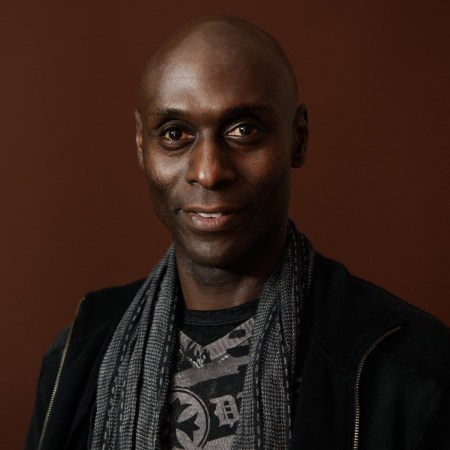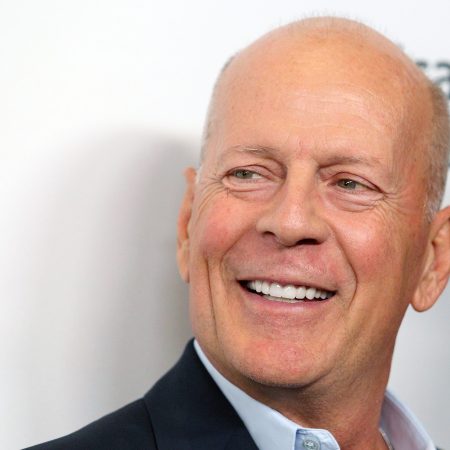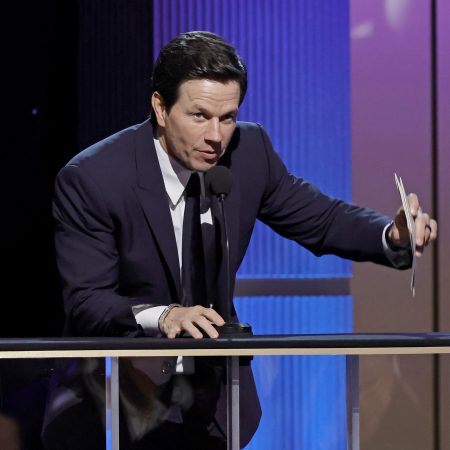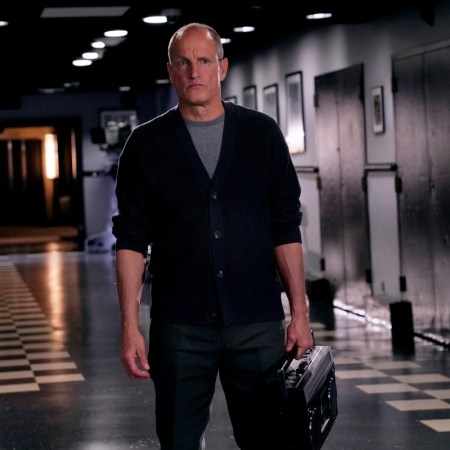Plenty of musically inclined actors have decided to take a leap and put out an album. But most of them — and certainly not those for whom that acting career that is currently flourishing, arguably on the precipice of genuine superstardom — don’t embark on the process of putting together their first record having already penned an entire back catalogue.
You probably know Caleb Landry Jones from his roles in Get Out, Three Billboards Outside Ebbing, Missouri, Twin Peaks or Friday Night Lights. You probably don’t know that he’s also written roughly 800 songs.
“I think it’s the equivalent of 25 or 26 hours,” Jones tells InsideHook. “It’s like a day, a day of music solid I think is what it is. Those are songs that I started when I was 18.”
Now 30, Jones is slated to share the first batch from that day of music by releasing his debut album, The Mother Stone, on May 1 via Sacred Bones. It’s a dreamy, psychedelic collection of tracks that calls to mind Pink Floyd or the White Album-era Beatles, presented as one seamless entity with no gaps in between songs — something Jones says came from playing the songs constantly to keep them in his head until he could get to his parents’ barn in Texas to record demos.
“After you’ve played the song for a week because you’re trying to keep remembering it along with other songs, you might elaborate on a piece or you might add a new part, and then the songs become sometimes too long,” he explains. “I think that’s what this record was. There’s a lot of songs that felt like, in the four minutes, it wasn’t a song, it was probably two songs, but I should put them as one for the record. I should put them as one for a record because otherwise it’s too long.”
“And I wanted to make it just one long song, but I was told that wasn’t a good idea,” he adds with a laugh.
Instead, the 15 listed tracks bleed together, taking listeners on a surreal journey that Jones says was partially influenced by dreams of his.
“It’s a bit of that and a bit of also just daydreaming and a bit of mixing a bit of what’s going on around me or what I’m feeling, mixed with what’s happening that no one else can see, mixed with ideas,” he says. “But, I feel like because of daydreaming and all that jazz, and dreams being so thick for me, they’ve affected me so much as a child and stuff, I guess I still feel like clinging to them and getting my point across by using the stuff I know. I don’t know how to explain it the best, because it’s just mixing the garble-goop of something in a dream, something that’s happening, something that’s happened and something that will happen, you know?” He pauses for a beat. “Maybe I shouldn’t have said in dreams. I feel like Roy Orbison or something.”
Like Orbison, Jones began playing music at a young age. He comes from four generations of fiddle players (though he doesn’t play fiddle himself), and his grandfather penned jingles for commercials while his mother taught piano lessons in the house. But despite growing up with a deep love of music, he never really considered it as a possible career path.
“I mean, I don’t know about you, but when you’re a kid, I wasn’t thinking about that stuff like that,” he says. “I never really started thinking about that stuff until I was probably 18 and done with high school and broken up with a girlfriend and my friends went to college that I went, ‘Man, I’ve got to quit. What am I going to do?’ Because I was always playing music, but music was never paying any money. And acting, I was getting those jobs a little sooner, and one gave me enough money to be able to go to L.A. and try to do more acting. But I didn’t think that was realistic until I actually decided to move out to L.A., and then that was, ‘OK, it’s either success or failure. There’s no in the middle.’ I mean it’s either going to work or it’s not going to work at all. If it doesn’t work at all, we’ll come to that when we come to that, but that can’t happen.’ But the more I acted, the more acting became more than I thought it could be. Yeah, I don’t know, I feel pretentious talking about it. But [music] didn’t seem realistic. It was just fun usually, music and performing. It’s just fun.”
It became more than just fun for Jones after a meeting with director Jim Jarmusch. (Jones appeared in Jarmusch’s 2019 film The Dead Don’t Die.) Rather than introduce himself in the traditional manner — a handshake, maybe a “nice to meet you” — Jones penned what would eventually become the album’s opening track, “Flag Day/Mother Stone,” as a way of introducing himself.
“Just because I find I’m no good usually with talking to people that their work has affected me,” he explains. “You know, I remember I was walking down the street in front of Harrods in London when I first went over there and I was 20, and I walked by Jimmy Page. All I could think of were songs, and then all of a sudden it dawned on me and I turned around and I screamed, ‘Jimmy Page,’ like an idiot. Everybody’s so busy, everybody’s out there and I walked up real fast to him and then threw out my hand and said, ‘Thank you.’ But I remember the way afterwards, my heart was just racing, and I found myself acting like a complete fool, like screaming his name in front of a big crowd in London … Then I realized how much some of these people, they really affected me. And Jim is definitely someone whose work has affected me a lot. So, I knew I was going to be acting like probably a twat, giggling or not being able to talk at all.”
Jones tells me the meeting with Jarmusch took place at a diner that didn’t happen to have a piano. So Jones slipped his demo to the director, who liked what he heard enough to put him in touch with Sacred Bones founder Caleb Braaten. Soon enough, he was recording The Mother Stone at Valentine Recording Studios with producer Nic Jodoin, and the rest, as they say, is history.
As for those remaining 785 songs?
“I’m not sure exactly what the label’s going to want to put out or what that’s going to be like, but I’m hoping to put out all of them,” he says. “They were recorded, they sounded like demo tapes, but I recorded them as if they weren’t, as if they were going to be the only surviving version. But yeah,” he laughs, “700, 800 is a lot to try and put out at once.”
This article was featured in the InsideHook newsletter. Sign up now.






















